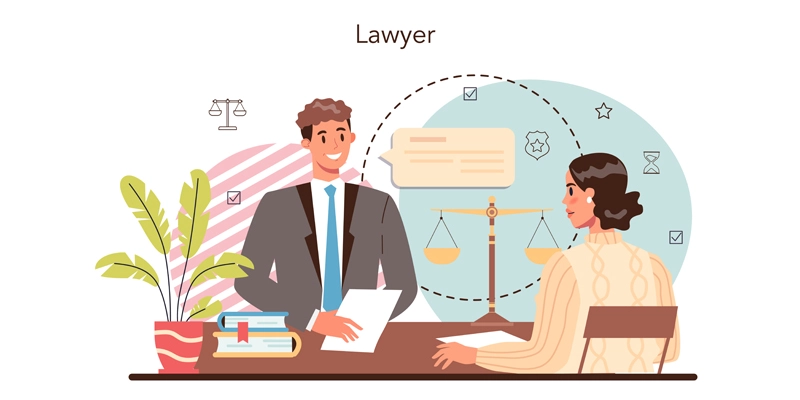If you’ve just been arrested and you’re wondering what to do next, this guide will walk you through the essential steps to take if you’ve been charged with aggravated DWI—a charge that carries much more weight than a standard DWI. Aggravated DWI isn’t just a more serious legal classification—it’s a situation that can redefine your life, your rights, and your future.
In plain terms, an aggravated DWI means the state believes your case includes factors that make it more dangerous or harmful than a regular DWI. This might involve having an extremely high blood alcohol concentration (BAC), causing injury, having a child in the car, or driving with a suspended license. Understanding this charge, and what to do next, can help you navigate a crisis and protect your future.
Let’s dig into the practical steps, legal strategy, and real-world stories that show exactly how to handle being charged with aggravated DWI in Texas or any other state.

What Is an Aggravated DWI?
Before we go any further, you need to understand what aggravated DWI actually means. In most states, including Texas, a basic DWI becomes “aggravated” when there are certain enhancing factors present during the offense. These aggravating factors automatically increase the severity of your charge—and the penalties.
Common Aggravating Factors Include:
- BAC over 0.15% (nearly double the legal limit)
- DWI with a child passenger (typically under 15 years old)
- Involvement in an accident causing serious injury or death
- Prior DWI convictions
- Driving with a suspended license or without an ignition interlock device when required
Why This Charge Is a Game Changer
When the charge upgrades to aggravated DWI, you’re no longer looking at simple fines and a slap on the wrist. You may now be facing felony charges, mandatory jail time, the loss of your driver’s license for years, and a criminal record that could follow you for life.
Step One: Understand the Severity of the Charge
The moment you hear the words “aggravated DWI,” you need to recognize that you’re in serious legal territory. This is not the time to take a wait-and-see approach. You need to act quickly and intelligently.
A delay in action can lead to missed deadlines, weaker defenses, and harsher penalties down the line.
The stakes are high:
- Felony charges can result in prison time
- You may face child endangerment charges if a minor was in the vehicle
- Your driver’s license could be suspended for a year or longer
- Fines and fees can soar into the tens of thousands
- Probation conditions can be strict and unforgiving
- Convictions may limit your access to housing, employment, and future opportunities
So the first step is mental: realize that this isn’t business as usual. Every decision you make from here on out can shape the outcome of your case.
Treat every move as if your freedom and reputation are on the line—because they are.
Step Two: Hire a Skilled Aggravated DWI Attorney Immediately
Time is not on your side. The very next step after arrest should be contacting a defense attorney who specializes in aggravated DWI cases. Not just any criminal defense lawyer—someone who has specifically handled and won these enhanced DWI cases.
The sooner you hire the right lawyer, the sooner they can begin protecting your rights and preserving evidence.
What to Look for in an Aggravated DWI Attorney:
- Experience with felony DWI charges
- Knowledge of blood and breath test procedures
- Understanding of Texas Penal Code §49.04–49.09 or your local equivalent
- Familiarity with local courts and prosecutors
- Proven track record of dismissals, plea deals, or reduced charges
- A reputation for aggressive advocacy and honest communication with clients

Real-World Example: The High BAC Nightmare
After a weekend in Austin, Marcus was pulled over for speeding and blew a 0.18 on the breathalyzer. His charge escalated to aggravated DWI. Because he immediately hired a top-rated defense attorney who questioned the accuracy of the breathalyzer and subpoenaed maintenance records, his attorney was able to get the BAC results thrown out. Marcus avoided jail time and pleaded down to a lesser offense.
This kind of outcome isn’t luck—it’s preparation.
Step Three: Preserve Evidence While It’s Fresh
Memories fade fast, and evidence disappears even faster. Within 24 hours of your arrest, take the following steps:
Every moment counts when you’re working to preserve details that could support your defense.
Write down everything you remember from the stop: where it happened, what the officer said, if you took any tests, and how you felt.
Be as specific as possible—details you think are minor might end up being critical in court.
List any witnesses who were with you or saw the arrest.
Even a brief statement from someone else can add valuable context or contradict the officer’s version of events.
Preserve texts, receipts, or social media that may show your level of intoxication or timeline.
Digital timestamps can help confirm what time you were at certain locations and what you were doing.
Photograph the scene or anything that could be relevant (road conditions, vehicle damage, etc.).
Photos can reveal lighting issues, signage problems, or environmental factors that might have influenced your driving or the officer’s perception.
This documentation can give your aggravated DWI attorney more tools to challenge the state’s narrative.
The more information your attorney has upfront, the stronger and more tailored your defense strategy can be.
Step Four: Do Not Speak to Police Without Legal Counsel
One of the most critical steps to take if you’ve been charged with aggravated DWI is this: remain silent unless your attorney is present. Anything you say can and will be used against you.
No matter how friendly or casual an officer seems, they are trained to gather information that strengthens their case.
Many people think they can talk their way out of the situation. But once you’ve been charged, police are not there to help—they’re building a case.
In most instances, trying to explain yourself will only add evidence to the prosecution’s file.
Common mistakes to avoid:
- Admitting you had “just a couple drinks”
- Trying to justify why you were speeding
- Giving consent to search your car or phone
- Downplaying your condition or making jokes
Say as little as possible and ask for your lawyer. This isn’t being rude—it’s being smart.
Your silence cannot be held against you in court, but your words certainly can.
Step Five: Attend Your ALR Hearing (and Request It on Time)
In Texas, you have only 15 days from the date of your arrest to request an Administrative License Revocation (ALR) hearing. If you miss the deadline, your license will be automatically suspended—regardless of the court case outcome.
Your aggravated DWI attorney can represent you at the ALR hearing and potentially challenge:
- Whether the officer had reasonable suspicion to pull you over
- Whether you were lawfully arrested
- The accuracy and handling of any breath or blood test results
Even if you don’t win the ALR hearing, it gives your attorney a valuable preview of the prosecution’s evidence.
Step Six: Prepare for the Court Process
After you’re charged, you’ll go through several court stages:
- Arraignment: Your first appearance where you plead guilty or not guilty
- Pretrial motions: Your attorney may file motions to suppress evidence or dismiss charges
- Negotiation: The state may offer plea deals to avoid trial
- Trial: If no deal is reached, your case goes before a judge or jury
Each phase matters. And when you’re dealing with aggravated DWI, the pressure is higher, the prosecutors more aggressive, and the penalties more severe.
Step Seven: Follow All Bond and Court Conditions
Once released, you’ll likely face conditions such as:
- No alcohol or drug use
- Random drug or alcohol testing
- Check-ins with a pretrial officer
- Installation of an ignition interlock device

Failing to meet any of these can land you back in jail and hurt your case. One misstep could turn a negotiable sentence into the worst-case scenario.
Step Eight: Evaluate Long-Term Consequences
Aggravated DWI convictions go beyond the courtroom. They affect your:
- Employment (especially if you drive or hold a professional license)
- Housing (landlords may reject applicants with felonies)
- Child custody rights (family courts take DWIs seriously)
- Firearm ownership (felony convictions strip your rights)
- Immigration status (non-citizens may face deportation)
Your attorney may help you apply for pretrial diversion, deferred adjudication, or probation instead of prison, depending on the circumstances. These outcomes can significantly soften the long-term damage.
Step Nine: Commit to Personal Change
No article about steps to take if you’ve been charged with aggravated DWI would be complete without this reminder: take this experience seriously.
The court may require you to attend:
- Alcohol education or treatment programs
- Community service
- Anger management or parenting classes (if children were involved)
Embracing these requirements early—and sincerely—can help you in court and in life.
Step Ten: Explore Expungement or Record Sealing (If Eligible)
In rare cases, you may eventually become eligible to have your record sealed or expunged. This depends on:
- Case outcome (dismissed or not guilty)
- Completion of probation or deferred adjudication
- Time passed since conviction
Although aggravated DWI records are harder to expunge than standard misdemeanors, a good attorney will know your options.

Final Thoughts: Turning a Crisis Into a Second Chance
Getting charged with aggravated DWI is terrifying—and rightfully so. The consequences can be devastating if you don’t take the right steps early. But a charge is not a conviction. You still have time to protect your freedom, your record, and your future.
By understanding the steps to take if you’ve been charged with aggravated DWI, you equip yourself with the power to fight back. Don’t panic—get informed, get legal help, and take deliberate action.
This may be one of the hardest chapters of your life—but with the right strategy and support, it doesn’t have to define your future.


